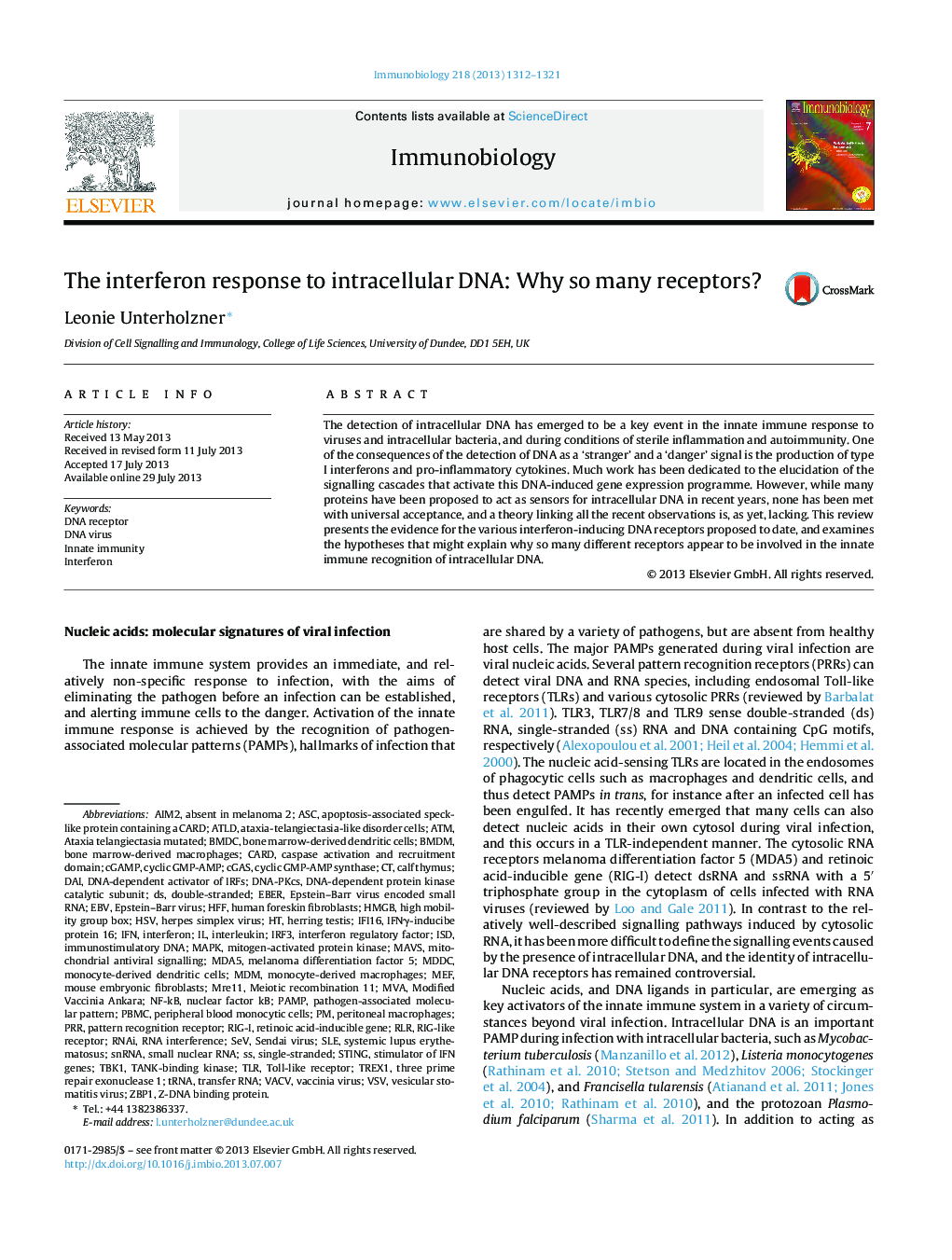| Article ID | Journal | Published Year | Pages | File Type |
|---|---|---|---|---|
| 2183446 | Immunobiology | 2013 | 10 Pages |
The detection of intracellular DNA has emerged to be a key event in the innate immune response to viruses and intracellular bacteria, and during conditions of sterile inflammation and autoimmunity. One of the consequences of the detection of DNA as a ‘stranger’ and a ‘danger’ signal is the production of type I interferons and pro-inflammatory cytokines. Much work has been dedicated to the elucidation of the signalling cascades that activate this DNA-induced gene expression programme. However, while many proteins have been proposed to act as sensors for intracellular DNA in recent years, none has been met with universal acceptance, and a theory linking all the recent observations is, as yet, lacking. This review presents the evidence for the various interferon-inducing DNA receptors proposed to date, and examines the hypotheses that might explain why so many different receptors appear to be involved in the innate immune recognition of intracellular DNA.
